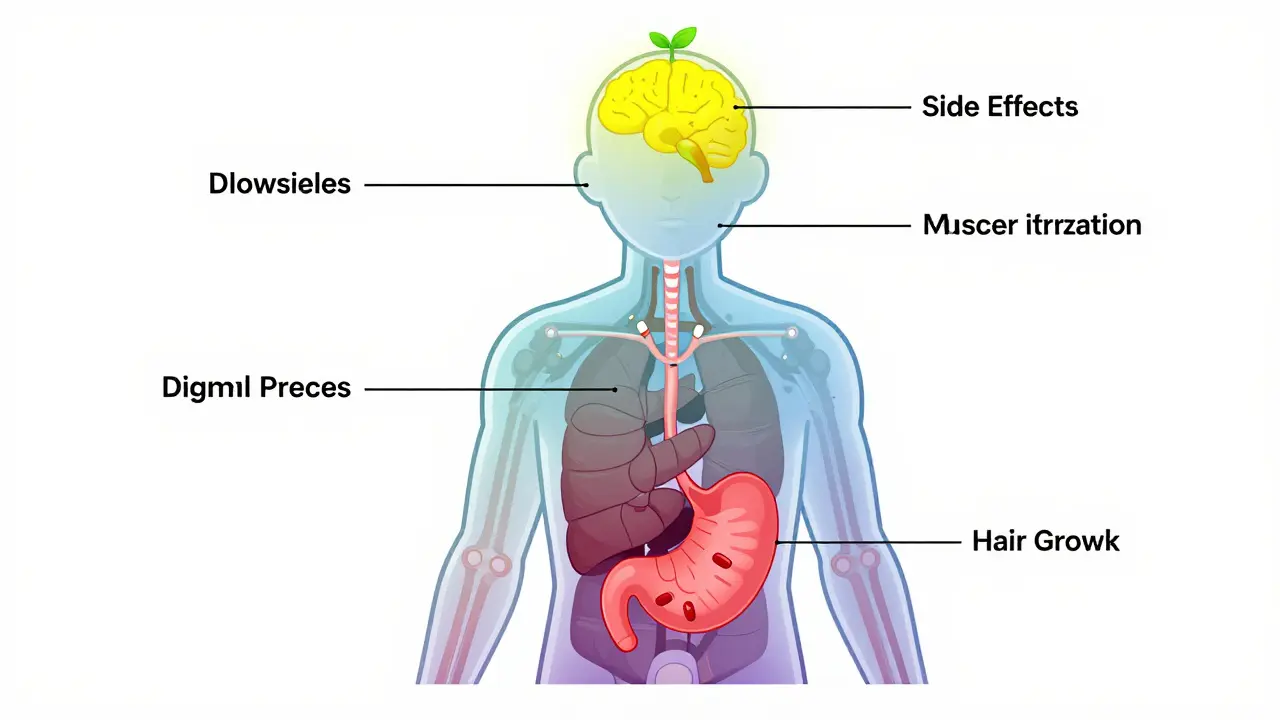Medication Side Effects: What You Need to Know
Taking medicine can help you feel better, but sometimes those benefits come with side effects. Side effects are unwanted or unexpected reactions to medications, and they can range from mild annoyances to serious health problems. Knowing what side effects to expect can help you use your medicine safely and avoid surprises.
Common Medication Side Effects and Why They Happen
Many medicines cause similar side effects like drowsiness, stomach upset, or headaches. For example, some heart medicines like Betapace (sotalol) might affect your heart rhythm or cause tiredness. Allergy meds like second-generation antihistamines often cause less drowsiness but still can make some people feel sleepy. Understanding these common reactions helps you watch for them and talk to your doctor if they become a problem.
Side effects happen because medicines don’t always hit just the target they’re aiming for. They might affect other parts of your body or change how your body’s systems work. Everyone reacts differently, so what feels mild to one person might be more intense for another. Factors like your age, other medicines you take, or your overall health can change side effects too.
How to Manage and Prevent Side Effects
Want to reduce your chances of side effects? First off, always follow your doctor’s instructions on how to take your medicine. Don’t skip doses or change amounts without talking to them. Sometimes, taking medication with food or at a specific time of day can lower side effects like nausea.
If you notice troublesome side effects, don’t just stop the medicine without consulting your doctor. They can adjust your dose, switch you to a different drug, or suggest ways to handle those symptoms. For example, if a statin like Crestor causes muscle pain, your doctor might try another cholesterol-lowering medicine with fewer side effects.
It’s also smart to inform your healthcare provider about all medicines and supplements you take. Mixing some drugs can increase side effects or create new issues. A quick check can save you from unexpected reactions and keep your treatment safe.
In short, being informed about medication side effects lets you make safer choices and manage your health better. Keep communication open with your doctor and watch your body’s signals. That’s the best way to get medicine benefits without unnecessary worry.
What Are Drug Side Effects: Definition, Causes, and Real-World Examples
Drug side effects are unintended reactions to medications that can range from mild to life-threatening. Learn what causes them, how common they are, and real examples from common drugs - plus what to do if you experience one.
Hemolytic Anemia from Medications: Recognizing Red Blood Cell Destruction
Drug-induced hemolytic anemia is a rare but dangerous condition where medications trigger the immune system to destroy red blood cells. Recognizing symptoms like fatigue, jaundice, and dark urine-and knowing which drugs are most likely to cause it-can save lives.
Immunocompromised Patients and Medication Reactions: What You Need to Know About Special Risks
Immunocompromised patients face unique risks from medications that suppress the immune system. Learn how common drugs like steroids, methotrexate, and biologics increase infection danger-and what you can do to stay safe.
Lamictal: The Real Guide to Lamotrigine for Bipolar, Epilepsy, and Mood
Dig into the reality of Lamictal—what it really does, who it helps, and secrets your doctor might not share right away. This article makes sense of the latest research, risks, and daily tips for anyone living with epilepsy or bipolar disorder. Expect practical advice, a breakdown of side effects, and how Lamictal compares to other treatments. No fluff, just real facts and life hacks you can use straight away.




